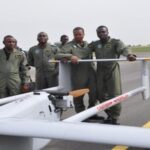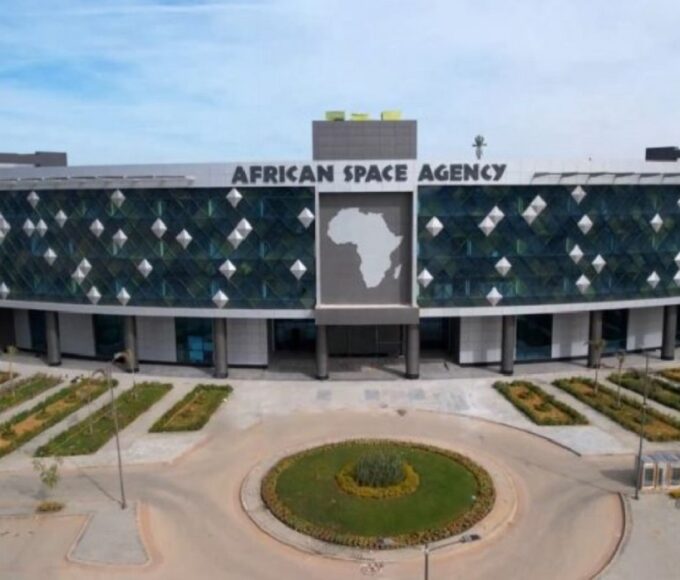AI and Surveillance: Ethical Concerns in Military Tech Deployment
AI and surveillance will remain central to Africa’s defence transformation. In an era of cross-border terrorism, cyber threats, and disinformation campaigns, these tools offer unmatched operational advantages.

Artificial Intelligence (AI) and advanced surveillance technologies are rapidly becoming integral to modern African defence systems. From AI-driven facial recognition at border crossings to predictive analytics in counterterrorism operations, the deployment of smart technologies is reshaping how African militaries engage with both adversaries and civilians.
But as these tools grow in sophistication and reach, so do the ethical concerns. At the intersection of operational necessity and civil rights, African states face a pressing challenge: how to deploy powerful surveillance technologies and artificial intelligence without undermining democratic norms, human dignity, and legal safeguards.
This article explores Africa’s emerging AI-surveillance security architecture, highlights case studies, and interrogates the ethical, legal, and political implications of this quiet but far-reaching transformation.
The Rise of AI in African Defence Operations
AI is now being deployed in a variety of military and paramilitary contexts across Africa:
- Border security systems using facial recognition and behavioural analytics (e.g., Kenya, Egypt, Nigeria).
- Predictive policing algorithms in urban areas prone to political unrest (e.g., South Africa and Tunisia).
- AI-assisted drone operations for ISR and kinetic missions (notably in the Sahel).
- Pattern recognition tools in SIGINT and cyber defence across multiple regional military intelligence units.
According to a 2023 African Union Commission report, at least 18 African nations have piloted or operationalised some form of AI-assisted surveillance system within their defence or homeland security institutions.
Case Studies: Technology in Action
Rwanda: Smart Policing and Surveillance
Rwanda’s Ministry of Defence has incorporated AI-enabled CCTV networks in Kigali and major towns. These systems identify suspicious vehicle movements, conduct facial matching against watchlists, and are linked to a centralised national security database.
Concerns: Local human rights groups have warned of the lack of judicial oversight and potential use of the system to monitor political opposition.
Nigeria: Drone Warfare and Target Identification
In joint operations with the Nigerian Air Force and Army, CH-4 and Wing Loong drones have been reported to use real-time AI-assisted image analysis to track insurgent movement and recommend targets.
Ethical Issue: There is no public record of a protocol for distinguishing civilians from combatants using AI, raising questions about proportionality and accountability under IHL (International Humanitarian Law).
Egypt: Mass Surveillance and Pre-emptive Arrests
The Egyptian military, in collaboration with Chinese and Russian AI firms, has deployed wide-area surveillance in Cairo and border towns. AI software tracks social media activity, movement patterns, and congregations deemed “security risks.”
Controversy: Human Rights Watch and Amnesty International have flagged these deployments as tools for suppressing dissent and criminalising protest.
Ethical Questions That Can No Longer Wait
The use of AI and surveillance in military operations presents several ethical dilemmas:
- Autonomy vs. Accountability: Who is responsible when an AI-driven system recommends or executes a lethal action?
- Privacy vs. Security: How much personal data should the state collect under “national security” justification?
- Bias and Discrimination: Many AI systems are trained on non-African data sets, which can lead to false positives and biased targeting.
- Civilian Oversight: Few African countries have legal frameworks guiding military surveillance, much less independent oversight bodies.
A 2023 survey by the Centre for African Security Studies found that only 4 African countries—South Africa, Ghana, Tunisia, and Kenya—have partial legislation regulating AI use in military or security contexts.
Military Necessity vs. Democratic Norms
The line between military advantage and civilian infringement is increasingly blurred:
- In low-intensity conflicts, AI helps military units anticipate IED placements, ambush points, and terrorist supply chains.
- In internal security settings, the same tools can be used for mass surveillance of civilians without warrants or oversight.
The African Charter on Human and Peoples’ Rights, to which most AU members are signatories, guarantees the right to privacy, dignity, and freedom of expression—rights that can be curtailed by unregulated surveillance regimes.
Recommendations for Responsible Use
African defence establishments must embed ethical principles into the lifecycle of surveillance and AI deployment. Some best practices include:
- Clear Legal Frameworks: Define the scope, limits, and oversight of AI systems through robust legislation.
- Transparency Mechanisms: Periodic public reporting on how surveillance data is collected, stored, and used.
- AI Ethics Units: Military or defence ministries should establish internal ethics review boards for emerging tech deployment.
- Training on AI Use and Limits: Ensure operators understand not only the technology but the rights of those it impacts.
- International Partnerships with Safeguards: Engage foreign AI vendors only under contracts that require data protection and compliance with AU human rights standards.
The Path Forward: Not Just Smart, But Just
AI and surveillance will remain central to Africa’s defence transformation. In an era of cross-border terrorism, cyber threats, and disinformation campaigns, these tools offer unmatched operational advantages. However, their power must be matched with purpose—and restraint.
African militaries and policymakers face a critical test: Can they build secure societies without building surveillance states? Can they embrace the promise of AI without repeating the errors of authoritarian overreach?
The answer lies in foresight, regulation, and a firm commitment to balance force with freedom.
AI & Surveillance Snapshot (2023–2024)
| Metric | Status/Insight |
| African countries using AI in defence/security | 18+ |
| Countries with AI-specific defence legislation | 4 (South Africa, Ghana, Tunisia, Kenya) |
| Documented military drone operations with AI | Nigeria, Egypt, Algeria, Burkina Faso |
| Reported civilian rights concerns linked to AI | 9+ nations (notably Egypt, Rwanda, Ethiopia) |
| AU-level AI ethics framework (defence) | In development as of early 2024 |
Recent Posts
Categories
- Air & Aerospace17
- Border Security15
- Civil Security6
- Civil Wars4
- Crisis5
- Cyber Security8
- Defense24
- Diplomacy19
- Entrepreneurship1
- Events5
- Global Security Watch6
- Industry8
- Land & Army9
- Leadership & Training5
- Military Aviation7
- Military History27
- Military Speeches1
- More1
- Naval & Maritime9
- Policies1
- Resources2
- Security12
- Special Forces2
- Systems And Technology9
- Tech6
- Uncategorized6
- UNSC1
- Veterans7
- Women in Defence9
Related Articles
SYSTEMS & TECHNOLOGY – THE CASE FOR SMART BORDERS IN AFRICA
On the continent of Africa, vast and varied landscape, borders often act...
ByKing Richard Igimoh, Group Editor ALODecember 11, 2025SYSTEMS & TECHNOLOGY – AFRICAN SATELLITE PROGRAMS: STRATEGIC GAME CHANGERS?
Across Africa’s 30 million square kilometers where borders stretch thin and climate...
ByKing Richard Igimoh, Group Editor ALONovember 19, 2025THE EVOLVING CYBERSECURITY FRONTIER IN AFRICA
Africa’s cybersecurity landscape is rapidly transforming as digital adoption surges across the...
ByKing Richard Igimoh, Group Editor ALOSeptember 5, 2025Counterinsurgency in the Age of Social Media: Hashtag Wars and the Battle for Minds
At 2:37 a.m. on a humid night in northern Mozambique, a short,...
ByKing Richard Igimoh, Group Editor ALOAugust 11, 2025













